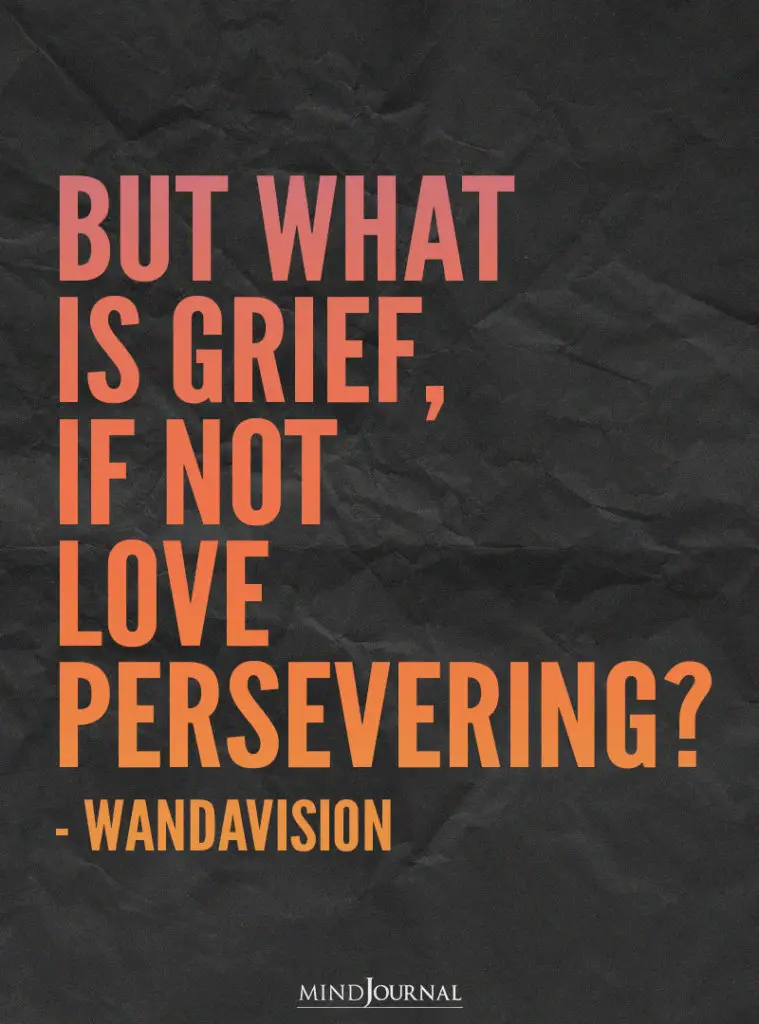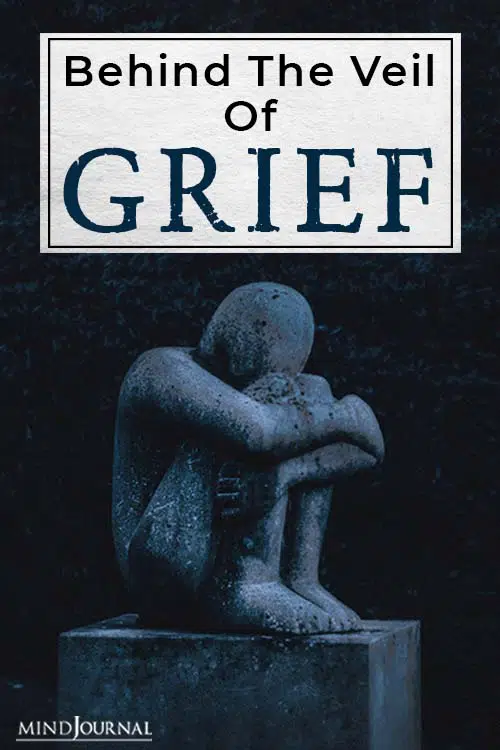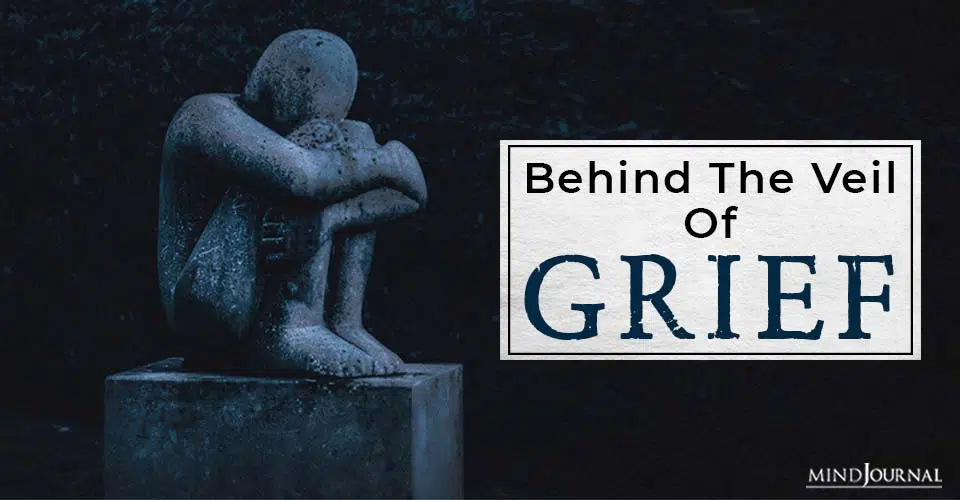“Only people who are capable of loving strongly can also suffer great sorrow, but this same necessity of loving serves to counteract their grief and heals them.” ― Leo Tolstoy
Key Points: - Grief can be all-encompassing, especially the loss of a partner and confidant. - Accepting the finality of a loss can make us feel powerless, but it's an essential aspect of grieving. - It can be difficult to know what to say or do to comfort someone who is grieving, but often just being there for them is enough.
Emotional states are often mixed. You are happy to see an old friend, yet there is a note of melancholy or sadness: Your friend is no longer the young person she used to be, and neither are you. Or you are excited to visit a new city, but you are worried about the weather forecast.
But some states are as pure as they are all-encompassing. They take over the heart and mind like a powerful storm, and the body must either yield to them or go on functioning on autopilot without much help from the mind, like a somnambulist. One walks but doesn’t see where one is going or eats but cannot taste the food.
One such emotional state is grief. Grief may, interestingly, make the ordinarily fragmented self whole. It can, like invisible glue, hold all the pieces in place as it permeates every fiber of our being. It is as though the grieving person is “held together” by pain.
Related: The Five Stages Of Grief: Exploring The Kübler-Ross Model
It may seem too that grief is not inside us, for it is too immense to be contained in such a small vessel as a single person; rather, we are in it. It envelopes us like a cloud and separates us from the rest of the world.
We may welcome that separation, for the world seems suddenly hostile when we grieve, laced by an unbearable absence. The person we have lost is missing not only from this or that place in the world—as he or she may be when traveling, say—but from everywhere.
While grief is often all-encompassing, however, it is by no means simple. It may have various distinct elements, depending on its object—friend, spouse, parent, or child.
It is difficult in a particular way to lose a soulmate and confidant, as that may be the person we talk to about every loss we suffer. The loss of a soulmate is thus like a disease that takes away not only your health but its own remedy. The one person who may have helped you get over the deceased’s death is deceased.
However, a loss experienced as wrong and unnatural such as the loss of a child — who is in general expected to outlive a parent — may be more difficult to deal with still and one may grieve longer than in any other case.
Grief Leaves Us Powerless.
One aspect common to most of the grief’s permutations, I believe, is powerlessness. Powerlessness can be difficult to accept. Sometimes, people do not allow themselves to grieve and, instead, opt to suppress the pain precisely because they reject their own powerlessness in the face of loss. While most of us go through a phase of denial during which we keep expecting to see the deceased again, hoping against hope that it was all a nightmare that would somehow end, some deny not the loss itself but what that loss has done to them.
Those who do not engage in this second type of denial have to grapple with their own powerlessness, with the fact that there is not much one can do about a great loss. Action, in general, can be thought of as an outlet for motivation. Acting helps restore our emotional balance. You feel restless, so you go out and take a walk. You are bored, so you find a new project.
There is little one can do in grief, and we tend to experience an accumulation of affect that cannot get channeled into action. Unless one is capable of sublimating the emotion and producing art of some kind, there is generally no action we can take that would restore our inner peace.
Jamie Anderson captures part of what I have in mind:
“Grief, I’ve learned, is really just love. It’s all the love you want to give, but cannot. All that unspent love gathers in the corners of your eyes, the lump in your throat, and in that hollow part of your chest. Grief is just love with no place to go.”

The absence of an outlet for our love is not all there is to grief. We miss the things the other person gave us—the support, the humor. We are saddened for them and want them to enjoy life for a little longer.
Nonetheless, the lack of an outlet for love is likely a key element in grief. Note in this regard that when a loved one loses his or her mental capacities, we feel a deep sadness that resembles grief in many ways, but that is not grief. What is the difference between the two? After all, when the alterations are sufficiently serious, the person we knew and loved is largely gone.
Related: The Stages Of Grief: Ways To Cope With Loss and Minimize The Pain
Perhaps the difference is that there is still a living body, so it feels as though our love has not entirely lost its object. That object has been transformed, but at least we have access to its material counterpart.
In still other cases, there may be actual grief without death. This can happen when, for instance, the object of attachment, without a transformation such as loss of cognitive faculties, is lost to us. Henry James describes such a case in his remarkable novel “The American”.
In this novel, an American man, Christopher Newman, falls in love with a French woman, Madame de Cintré, and asks her to marry him. At first, she agrees, but later, under never fully disclosed circumstances having to do with pressure from her family, she becomes a Carmelite nun. Newman approaches the monastery where his love now resides, with the hope of, perhaps, getting a glimpse of her. There is a wall that prevents him from seeing much, but he hears the nuns chanting. He pauses to listen and attempts to discern Madame de Cintré’s voice in the chorus.
James writes:
“At first, Newman was bewildered, almost stunned by the strangeness of the sound; then, as he comprehended its meaning, he listened intently and his heart began to throb. He listened for Madame de Cintré’s voice, and in the very heart of the tuneless harmony, he imagined he made it out… The chant kept on, mechanical and monotonous, with dismal repetitions and despairing cadences.
It was hideous, it was horrible; as it continued, Newman felt that he needed all his self-control. He was growing more agitated; he felt tears in his eyes. At last, as in its full force the thought came over him that this confused, impersonal wail was all that either he or the world she had deserted should ever hear of the voice he had found so sweet, he felt that he could bear it no longer. He rose abruptly and made his way out.”
Despite the fact that Madame de Cintré is alive and well, Newman here is like a person who, after a period of denial, finally comes to grips with what has happened.
In grieving, we acknowledge not only a loss but its finality. If you knew you would be reunited with your loved one, even many years from now, you might be sad to see them go, but the sadness would be mixed with hope and so won’t be grief. It is only after we acknowledge the irreversibility of loss, the way Newman does, and give up hope that we can grieve.
Can We Do Anything For The Grieving?
It may seem like we cannot do much. What can we possibly say? And even if we had something to say, the grieving maybe both be unwilling and unable to hear it. We and they may be in the same room, but they will resolutely remain separated from us, behind a veil of grief.
Yet, our presence could make a difference even when there isn’t anything we can say. We may be able to help by standing there.
In silence. C.S. Lewis, in A Grief Observed, says that while he could not talk to others while grieving, he feared being left alone:
“I want the others to be about me. I dread the moments when the house is empty. If only they would talk to one another and not to me.”
Occasionally, we ask what happiness is and how we may find it. Grief may bring home to us the fact that we had it, for what was taken from us may have been precisely happiness. And nothing that you didn’t have can be taken from you.
Related: 5 Ways To Help Someone Who Is Dealing With Loss
To the extent that people are irreplaceable, the happiness we can experience with a particular other person is irreplaceable as well. But there are two things I wish to say about this point.
First, the world would be a much worse place if people were replaceable, even though such a world may be one without grief.
Second, happiness can be rebuilt. Not the same happiness, but a different one. The psyche wounded by a loss attempts to heal. While it may not seem so shortly after the loss, we can gradually learn to untangle ourselves from the now-unreal world that contains the missing person and rejoin the real world, a world without that person but with all the other people.
The mistake those who do not allow themselves to grieve make is not in the destination but in the speed. We must eventually rejoin society, but we cannot do so immediately. There may be days when grief seems unbearable to the mourner. Poetry and music may help on those days. Grief can sometimes be made more tolerable by making it beautiful.
As Dostoyevsky says, “Tragic phrases comfort the heart… Without them, sorrow would be too heavy for men to bear.”
Importantly, we ought to recognize that the grieving person may be temporarily lost to the rest of us, much as the deceased is lost to them. We mustn’t put pressure on mourners to come back and go on living the way they did before any more than those in denial about their own grief ought to put pressure on themselves to do the same.
The grieving may be temporarily lost to us, but we can still be with them, even when there isn’t much we can say or much they would want to hear. We could simply be there as they sit with their grief and their love with a now missing object. For Anderson may be right that in the end, grief is but love with no place to go.
For more essays by Iskra Fileva, check out her column at Psychology Today: https://www.psychologytoday.com/us/contributors/iskra-fileva-phd
Written By Iskra Fileva Originally Appeared On Psychology Today









Leave a Reply
You must be logged in to post a comment.